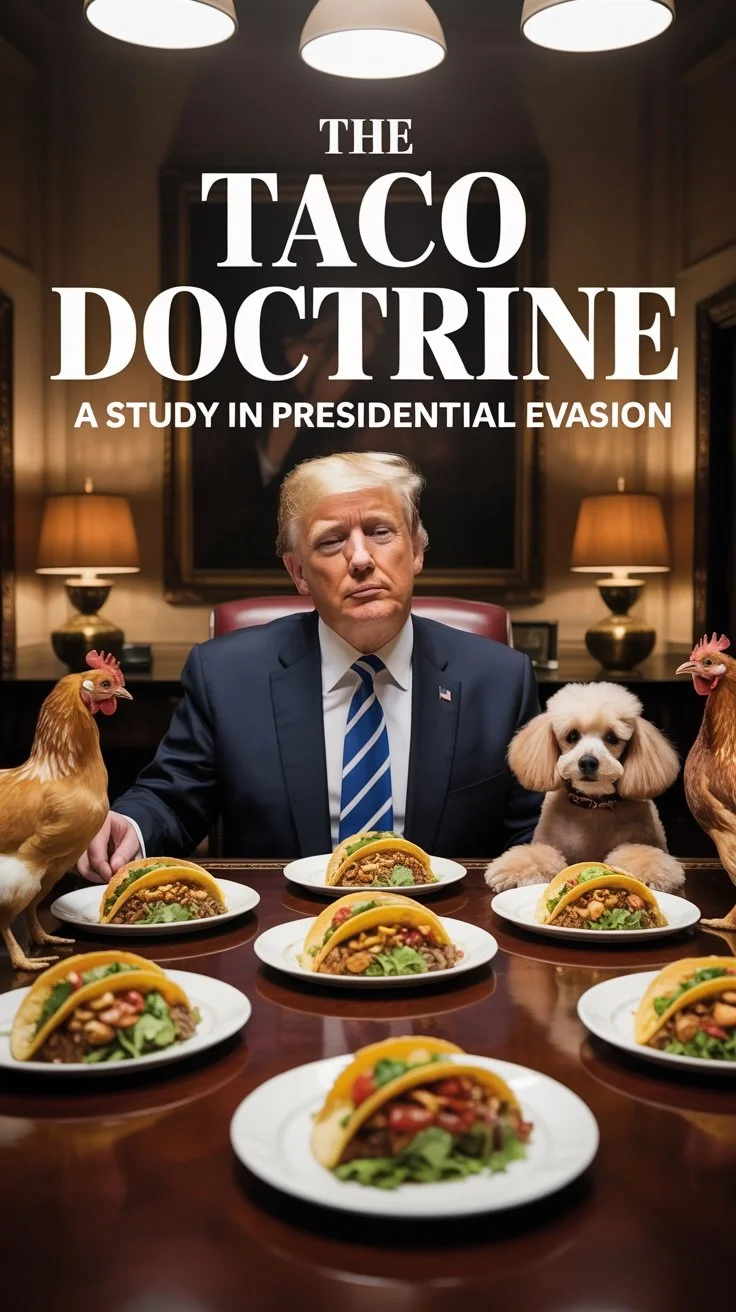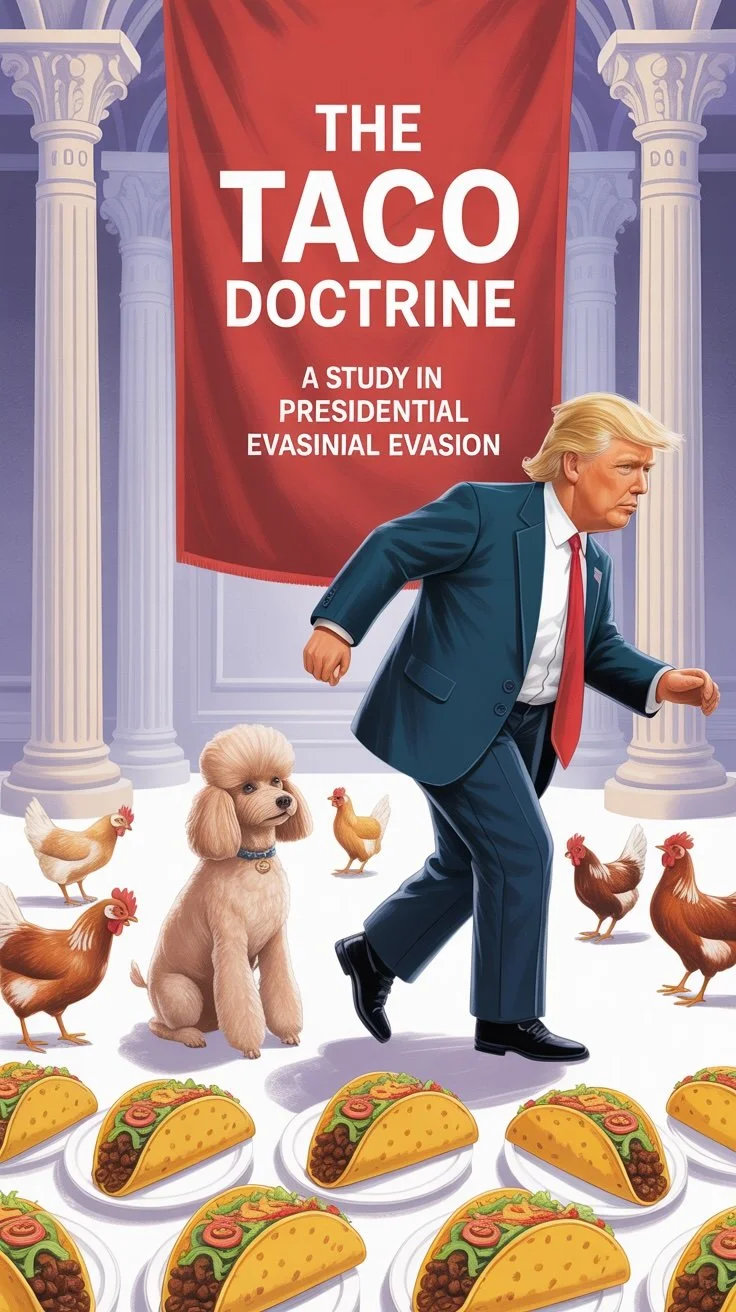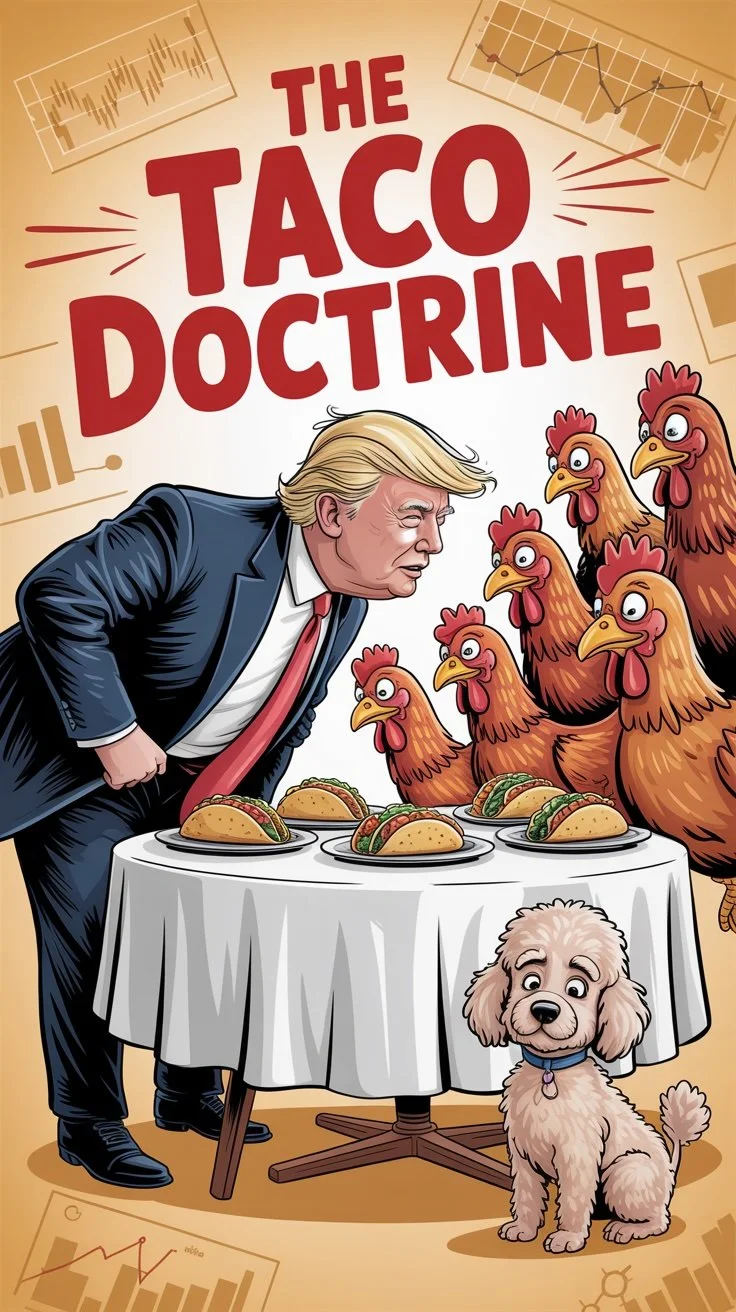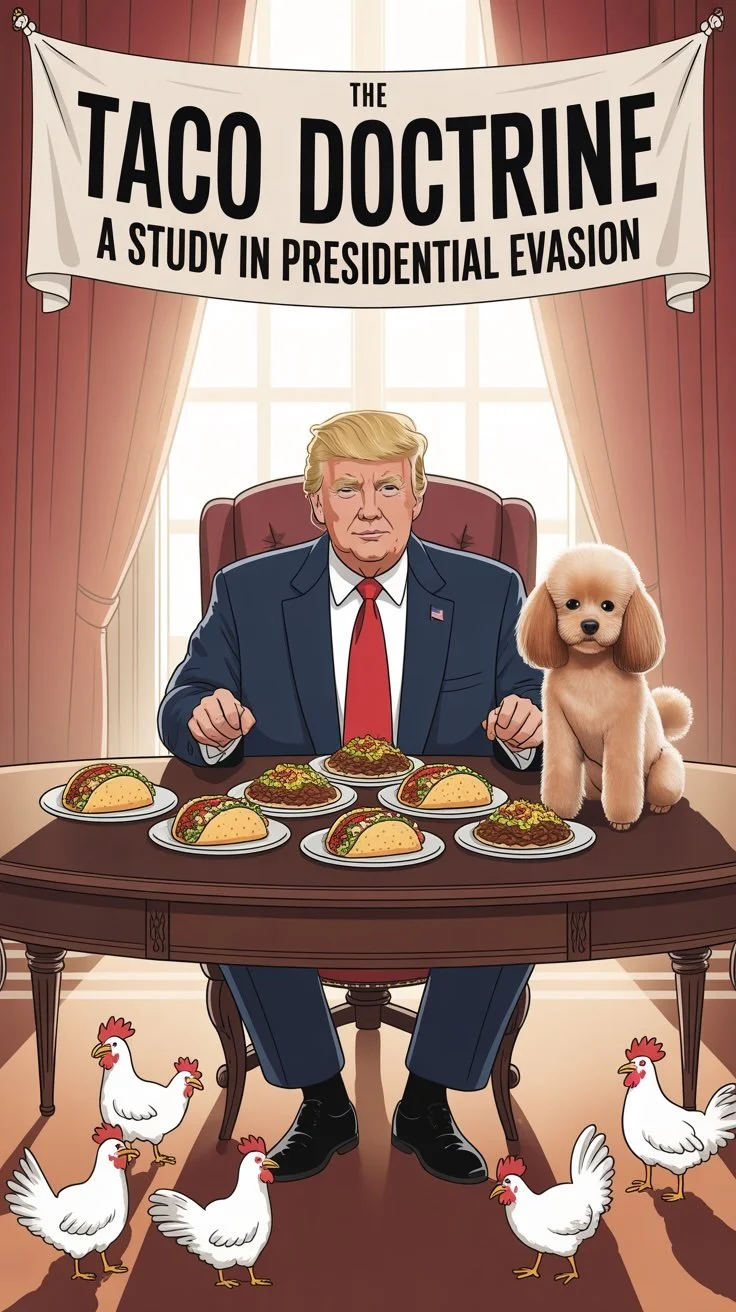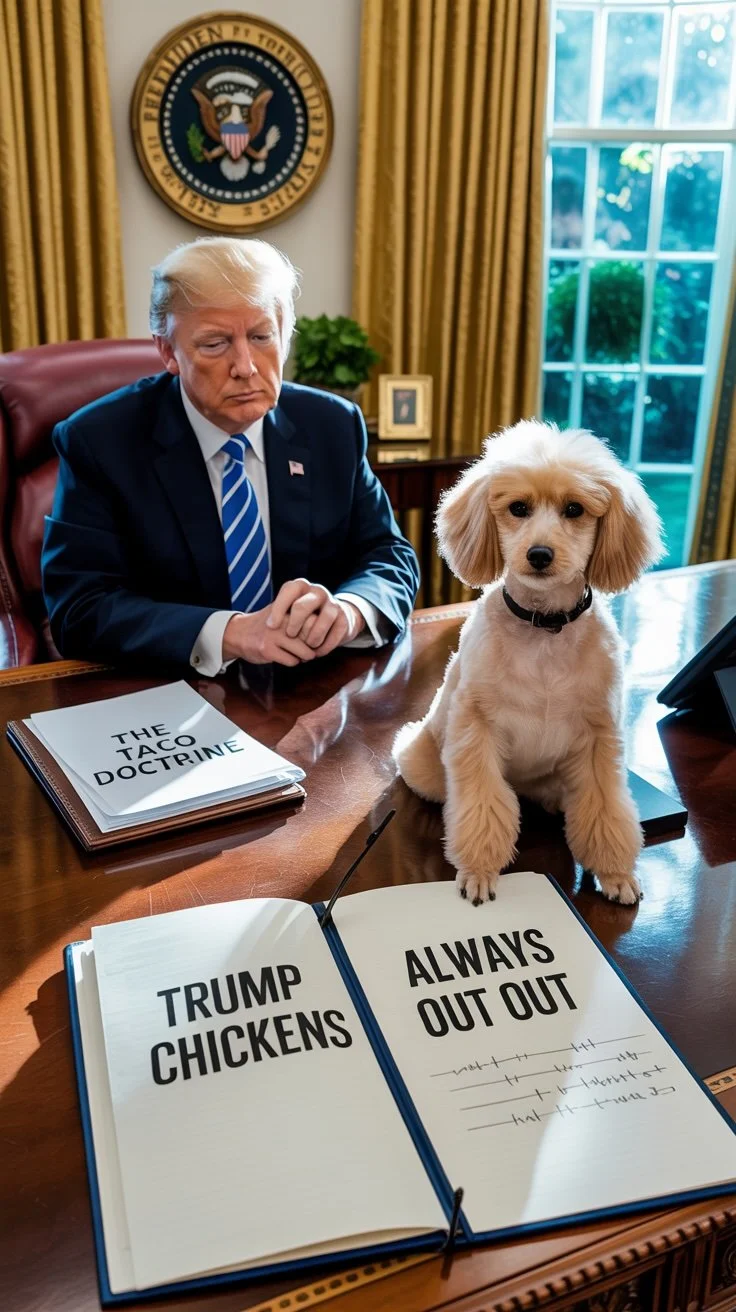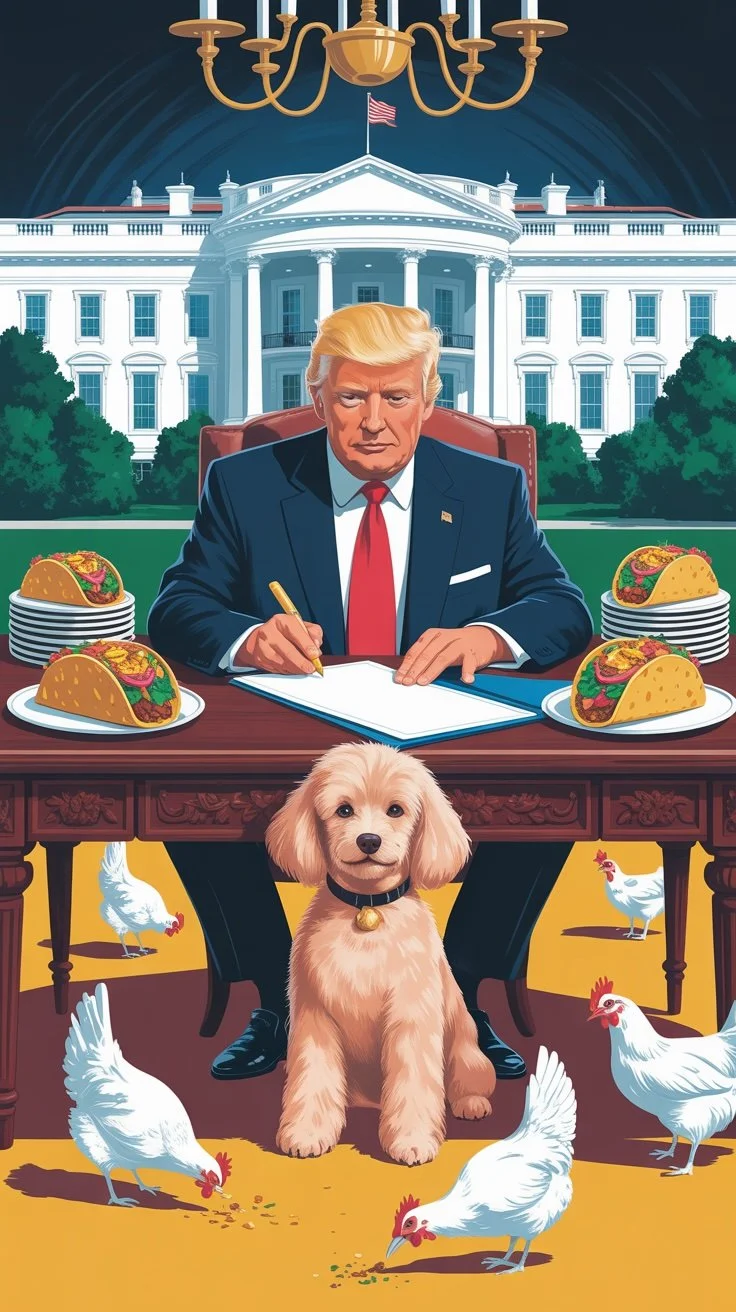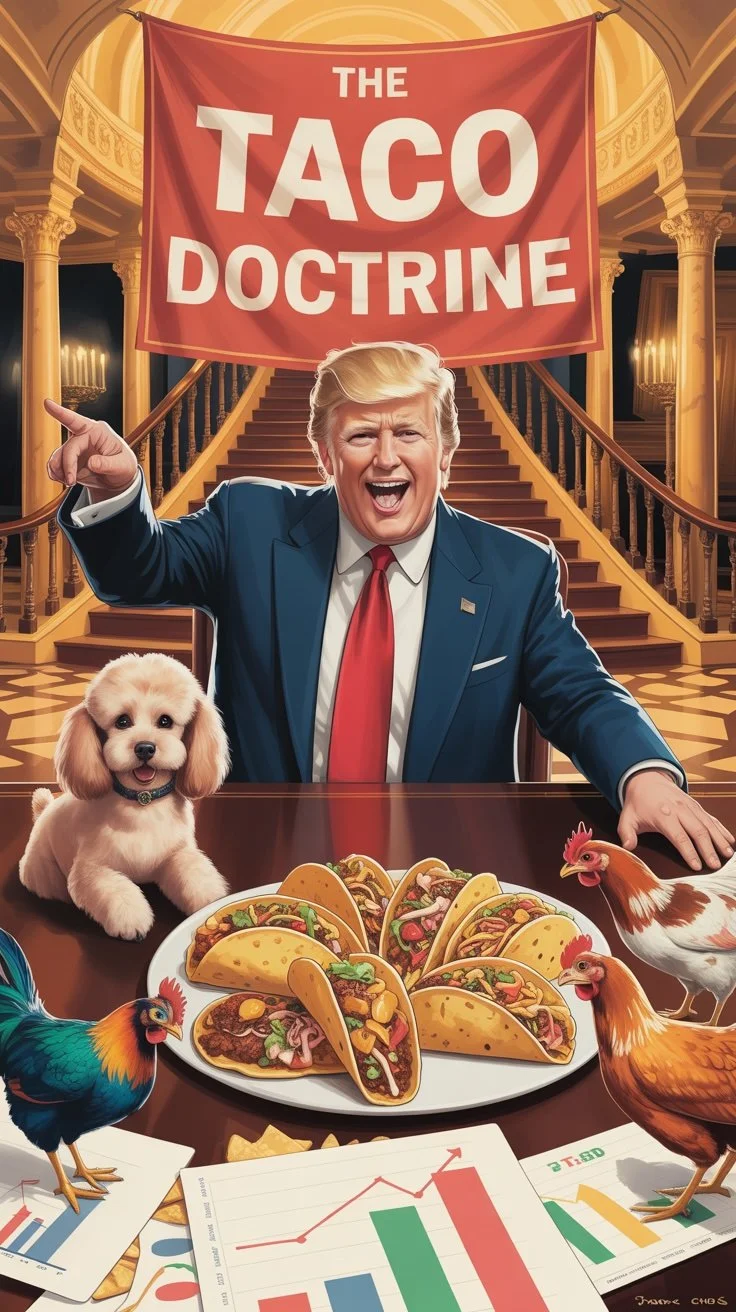The TACO Doctrine:
A Study in Presidential Evasion
In the grand theater of economic policy, it is often tempting to mistake the clamor of cymbals for the resonance of conviction. Nowhere has this confusion been more persistently dramatized than in the peculiar choreography of President Donald Trump’s trade strategy—a spectacle of bold beginnings followed, almost invariably, by a retreat into bathos. The term now catching currency among economists and even the more impish bond traders is “TACO,” an acronym both zesty and damning: Trump Always Chickens Out.
Let us be clear. Tariffs are not a novelty. They are, in fact, among the oldest tools in the nation-state’s kit of self-inflicted wounds. Yet they have, on occasion, served a purpose—usually ill-defined, sometimes unintentionally. What is remarkable in the Trumpian era is not the resort to tariffs but the theatricality of their announcement, the drama of their declaration, and the predictability of their subsequent dilution.
At the outset, we were promised a new age of economic nationalism. American steel and aluminum would rise again; the trade deficit would melt like morning frost; China would be brought to heel; Mexico would pay—presumably in both currency and humility. In short, we were to believe that the businessman-president, with his infinite swagger, would do for the American worker what decades of globalist ne’er-do-wells could not.
And yet, time and again, when the moment of maximal leverage arrived—when the game required resolve rather than rhetoric—the president, to use the economic term of art, folded. What was touted as a 25% tariff would become a 10% deferral, then a partial exemption, then, most ignobly, a handshake deal signed in gold Sharpie and undone by Tuesday.
The Chinese, whose sense of irony is only matched by their patience, mastered the dance. They endured insult, tariffs, and tweets, only to find themselves, six months later, at a negotiating table set with the same empty platitudes and a president who craved applause more than leverage. The so-called “Phase One Deal,” that pinnacle of Trumpian tradecraft, produced not transformation, but soybeans—modestly purchased, ambiguously promised, and mostly forgotten.
To invoke Galbraith himself, one is reminded of his observation that “the modern conservative is engaged in one of man’s oldest exercises in moral philosophy; that is, the search for a superior moral justification for selfishness.” The modern Trumpist is engaged in something similar, though more comical: the search for a superior branding strategy for economic cowardice.
It is here that the TACO doctrine finds its true utility—not merely as insult, but as diagnosis. It speaks to a governing style where belligerence is substituted for strategy, and capitulation is camouflaged by fanfare. Trump’s tariff regime was less a doctrine than a dopamine hit. Each announcement brought a surge of attention, a brief rise in approval among the aggrieved, and then, once the cameras turned away, the predictable slide into ambiguity, exemption, and surrender.
In the end, what we are left with is not a trade realignment but a parable. A lesson in how bluster, unmoored from discipline, leaves neither friend nor foe certain of intent. TACO, then, is not just an acronym. It is an epitaph for a strategy that mistook shouting for strength and compromise for conquest.
As Galbraith might have said, though perhaps with more grace than this humble interpreter: “In economics, as in politics, it is not enough to be loudly wrong. One must, at the very least, avoid being repeatedly ridiculous.”


